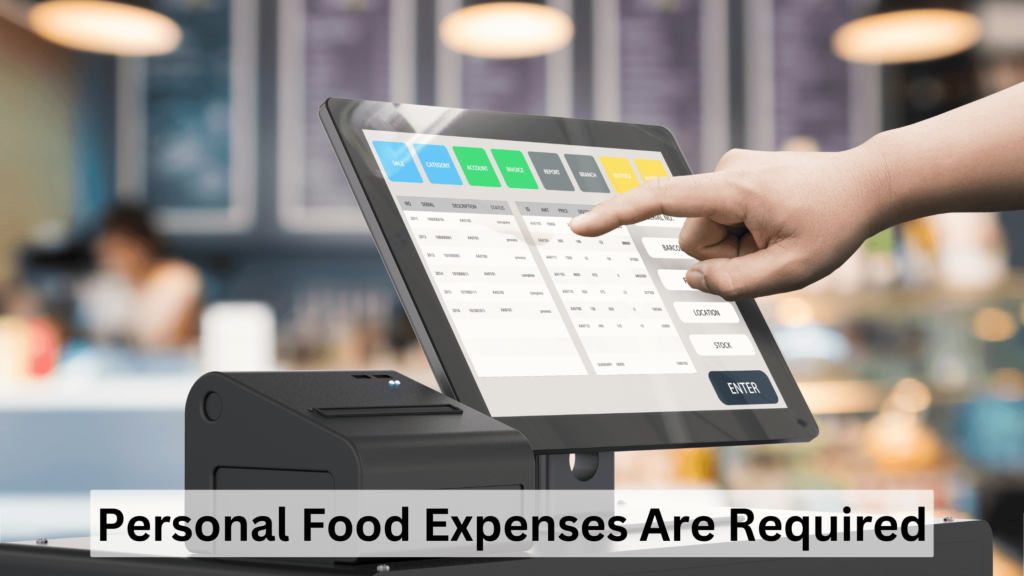
Talking about splitting the bill or paying individually can sometimes feel awkward, but the right words can make it easier. Instead of repeatedly saying “pay for your own meal,” there are plenty of polite and creative alternatives to use.
This article explores 15 different ways to express the same idea, along with scenarios where each phrase fits best. Whether it’s a casual gathering or a professional meet-up, these options will help you set clear expectations while keeping the tone friendly and considerate.
Contents
- 1 Is It Polite to Say “Pay for Your Own Meal”?
- 2 15 Other Ways to Say “Pay for Your Own Meal”
- 2.1 1. Please be prepared to cover your own meal costs
- 2.2 2. Meals will be self-sponsored
- 2.3 3. Attendees are responsible for their own dining expenses
- 2.4 4. Dining options will be at guests’ own expense
- 2.5 5. Guests will have the opportunity to select and pay for their own meals
- 2.6 6. Pay for your own food
- 2.7 7. Each person pays for their meal
- 2.8 8. Self-pay for dining
- 2.9 9. Dine at your own expense
- 2.10 10. Bear your meal expenses
- 2.11 11. Individual meal payments apply
- 2.12 12. Personal food expenses are required
- 2.13 13. Meals are not included in the event
- 2.14 14. Guests should budget for their own meals
- 2.15 15. Shoulder your dining costs
- 2.16 Conclusion
- 2.17 FAQS
- 2.17.1 What is it called when you pay for your own meal?
- 2.17.2 How do you say “pay for your own meal” on an invite?
- 2.17.3 How do I tell my guest they have to pay for their own meal?
- 2.17.4 How do you tell people to pay for their own food?
- 2.17.5 What to say when someone pays for your meal?
- 2.17.6 Is it okay to host a party and ask the guests to pay?
- 2.17.7 What is the word for “pay your own way”?
Is It Polite to Say “Pay for Your Own Meal”?
Saying “pay for your own meal” is straightforward but can sometimes feel too blunt, depending on the context. While it’s fine for casual settings with friends, like saying, “Let’s grab dinner, and we’ll each cover our own meals,” a softer approach works better in formal settings, such as “We’ll go Dutch to keep things simple.”
Clarity is key when organizing group outings. Polite alternatives like “It’s a no-host event, so everyone will handle their own tab” ensure transparency while keeping the tone courteous. Tailoring your phrasing to the situation helps maintain both clarity and politeness.
15 Other Ways to Say “Pay for Your Own Meal”
Explore 15 alternative ways to express the idea of covering your own meal costs.
- Please be prepared to cover your own meal costs.
- Meals will be self-sponsored.
- Attendees are responsible for their own dining expenses.
- Dining options will be at guests’ own expense.
- Guests will have the opportunity to select and pay for their own meals.
- Pay for your own food.
- Each person pays for their meal.
- Self-pay for dining.
- Dine at your own expense.
- Bear your meal expenses.
- Individual meal payments apply.
- Personal food expenses are required.
- Meals are not included in the event.
- Guests should budget for their own meals.
- Shoulder your dining costs.
>> Related Guide: 20 Other Ways to Say “Thank You for Clarifying” (With Scenarios)
1. Please be prepared to cover your own meal costs

This phrase sets the expectation that attendees will need to pay for their meals. It’s a polite way of informing people that meal expenses are not covered by the host or the event organizers. It encourages attendees to be mindful of their dining budget for the event.
Scenario: At a networking event, the invitation includes a note, “Please be prepared to cover your own meal costs.” This ensures attendees understand they need to bring funds for lunch or dinner.
| Action | Details |
| Payment Responsibility | Attendees pay for their meals |
| Expected Behavior | Be ready to cover food expenses |
| When to Use | Informing attendees about meal costs |
2. Meals will be self-sponsored
“Self-sponsored meals” means that individuals are responsible for their own food expenses. This term is often used in situations where the event organizer does not include meals as part of the ticket price or event cost. It’s a straightforward way to let participants know they’ll need to budget for their meals.
Scenario: During a conference, the organizer sends an email: “Meals will be self-sponsored, and attendees are encouraged to choose from a variety of local restaurants.” This ensures that the event remains affordable without meal inclusions.
| Action | Details |
| Payment Responsibility | Attendees sponsor their own meals |
| Expected Behavior | Attendees choose and pay for food |
| When to Use | When there is no food provided by the event |
3. Attendees are responsible for their own dining expenses
This phrase directly states that the cost of meals falls on the attendees. It removes any ambiguity and clarifies that meal costs are not covered. It’s often used in formal invitations or event guidelines where transparency about expenses is important.
Scenario: A business seminar informs participants: “Attendees are responsible for their own dining expenses.” This is useful for ensuring there’s no misunderstanding about what the registration fee covers.
| Action | Details |
| Payment Responsibility | Attendees cover their dining expenses |
| Expected Behavior | Attendees budget for their food needs |
| When to Use | For formal or business-related events |
>> Enjoy this expert note: Get Well Soon
4. Dining options will be at guests’ own expense
This communicates that any meals chosen by the guests will not be funded by the host or the event organizer. It’s a clear and direct way to remind attendees that meals are not included and they will have to pay for them.
Scenario: A wedding invitation mentions, “Dining options will be at guests’ own expense,” as it is an informal event where guests are expected to choose and pay for their own food.
| Action | Details |
| Payment Responsibility | Guests are responsible for food costs |
| Expected Behavior | Guests pick and pay for their meals |
| When to Use | Informal gatherings or casual events |
5. Guests will have the opportunity to select and pay for their own meals
This phrase offers flexibility by letting guests choose their food preferences and be responsible for the cost. It’s a more positive way of saying meals are not included, giving attendees freedom of choice.
Scenario: At a charity event, the organizer states: “Guests will have the opportunity to select and pay for their own meals.” This allows everyone to choose from a menu of options that fits their tastes and dietary needs.
| Action | Details |
| Payment Responsibility | Guests pick and pay for their meals |
| Expected Behavior | Guests have food choices |
| When to Use | For events with a variety of meal options |
6. Pay for your own food

This is a direct and simple way to tell attendees they must pay for their meals. It’s often used in casual settings where the expectation of self-sponsorship is implied and doesn’t need much elaboration.
Scenario: A group of friends heading to a local restaurant after a meetup may say, “Pay for your own food,” making it clear that everyone should cover their meal.
| Action | Details |
| Payment Responsibility | Each person pays their own food bill |
| Expected Behavior | Everyone covers their own food expenses |
| When to Use | Casual or informal group events |
>> Explore these informative notes: Have a Great Weekend
7. Each person pays for their meal
This phrase is slightly more formal than “pay for your own food” but still emphasizes individual responsibility. It’s useful for events where multiple people are involved, such as group lunches or dinners.
Scenario: At a team-building lunch, the organizer might say, “Each person pays for their meal,” to make sure everyone knows they’re individually responsible for the bill.
| Action | Details |
| Payment Responsibility | Attendees cover their own meal costs |
| Expected Behavior | Each person pays separately for their meal |
| When to Use | Group dining or corporate events |
8. Self-pay for dining
“Self-pay for dining” is a formal way to specify that meals are not included in the event and that attendees will need to pay for their food. This term is often used in professional or corporate settings.
Scenario: At a business lunch, the host says, “Self-pay for dining,” signaling that employees should expect to pay for their meals.
| Action | Details |
| Payment Responsibility | Attendees pay for their own meals |
| Expected Behavior | Meals are not included in the event |
| When to Use | Professional or corporate meetings |
9. Dine at your own expense
This phrase communicates that guests will need to pay for their meals. It’s straightforward and often used in event details to ensure clarity about who is responsible for meal costs.
Scenario: For a casual social gathering, the invitation notes: “Dine at your own expense,” ensuring attendees know they should bring money for food.
| Action | Details |
| Payment Responsibility | Guests pay for their meals |
| Expected Behavior | Attendees are responsible for food |
| When to Use | Casual or social events |
>> Discover these valuable suggestions: Welcome Back
10. Bear your meal expenses
“Bear your meal expenses” is a slightly formal way of saying you need to cover the cost of your meal. It’s a more professional way of phrasing that meal costs are your responsibility.
Scenario: A conference invites participants: “Bear your meal expenses,” clearly indicating that meals are not covered by the event.
| Action | Details |
| Payment Responsibility | Attendees are responsible for their meals |
| Expected Behavior | Attendees pay for their own food expenses |
| When to Use | Formal business or educational events |
11. Individual meal payments apply
This phrase makes it clear that meal costs are paid individually, rather than as a group. It’s used to ensure that each attendee knows they are solely responsible for their dining costs.
Scenario: A seminar schedule includes: “Individual meal payments apply,” ensuring each participant knows they will pay separately for their food.
| Action | Details |
| Payment Responsibility | Each person pays for their own meals |
| Expected Behavior | Attendees cover individual meal costs |
| When to Use | Organized events with individual food choices |
12. Personal food expenses are required

This phrase signals that attendees should plan to cover their personal food costs. It’s often used when the event does not provide meals, and each person must handle their own budget for dining.
Scenario: A retreat might say, “Personal food expenses are required,” ensuring attendees understand they need to manage their meal budgets throughout the event.
| Action | Details |
| Payment Responsibility | Attendees pay for their own meals |
| Expected Behavior | Guests manage their own food costs |
| When to Use | Retreats or long events without provided meals |
>> Enjoy these valuable notes: Welcome Home
13. Meals are not included in the event
This phrase directly informs attendees that the event organizers will not be providing meals. It’s a simple and clear statement that removes any confusion about meal availability.
Scenario: A day-long workshop might include the note: “Meals are not included in the event,” so participants are prepared to bring their own food or pay for it.
| Action | Details |
| Payment Responsibility | Meals are not covered by the event |
| Expected Behavior | Attendees should prepare for meal costs |
| When to Use | When meals are not included in a scheduled event |
14. Guests should budget for their own meals
This phrase encourages guests to prepare in advance for their meal expenses. It’s a gentle reminder to account for food costs as part of the event experience.
Scenario: A company retreat sends a reminder: “Guests should budget for their own meals,” ensuring everyone knows that food will be an out-of-pocket expense.
| Action | Details |
| Payment Responsibility | Attendees plan and manage their meal budget |
| Expected Behavior | Attendees bring funds for dining |
| When to Use | Budget-conscious events or retreats |
>> Relevant post: 16 Other Ways to Say “Have a Good Rest of Your Day” (With scenarios)”
15. Shoulder your dining costs
This phrase is an alternative way of saying that attendees will be responsible for their own meal expenses. It implies that the responsibility falls entirely on the individual.
Scenario: At a gathering, the host may say: “Shoulder your dining costs,” letting attendees know they need to cover the cost of their meals.
| Action | Details |
| Payment Responsibility | Attendees must cover their own food expenses |
| Expected Behavior | Each person handles their dining budget |
| When to Use | For any event where meals are not provided |
Conclusion
It’s important to clearly communicate meal costs to attendees to make sure the event runs smoothly and everyone enjoys it. While saying “pay for your own meal” works, using other phrases can help set the right tone, depending on whether the event is casual, formal, or professional. Event organizers can choose from many polite and clear alternatives to avoid any confusion about who is responsible for the meal costs.
The key is to be upfront and transparent, whether using terms like “self-sponsored meals” or “dine at your own expense.” When attendees know what to expect, they can plan and budget for their meals better, making the event more enjoyable for everyone. These 15 alternative phrases help event organizers make sure the meal cost situation is clear and avoid any awkwardness about finances.
>> Enjoy this informative recommendation: Rest in Peace
FAQS
What is it called when you pay for your own meal?
It’s commonly called “self-pay” or “paying your own way.”
How do you say “pay for your own meal” on an invite?
You can say, “Meals will be self-sponsored” or “Guests are responsible for their own meal costs.”
How do I tell my guest they have to pay for their own meal?
You can say, “Please be prepared to cover your own meal expenses” or “Dining will be at your own expense.”
How do you tell people to pay for their own food?
You can politely say, “Each person will pay for their own meal” or “Please pay for your own food.”
What to say when someone pays for your meal?
You can say, “Thank you so much for treating me!” or “I really appreciate you covering my meal.”
Is it okay to host a party and ask the guests to pay?
Yes, it’s okay as long as it’s communicated clearly in advance, such as stating, “This will be a self-pay event.”
What is the word for “pay your own way”?
The term for “pay your own way” is often referred to as “going Dutch” or “self-sponsorship.”

